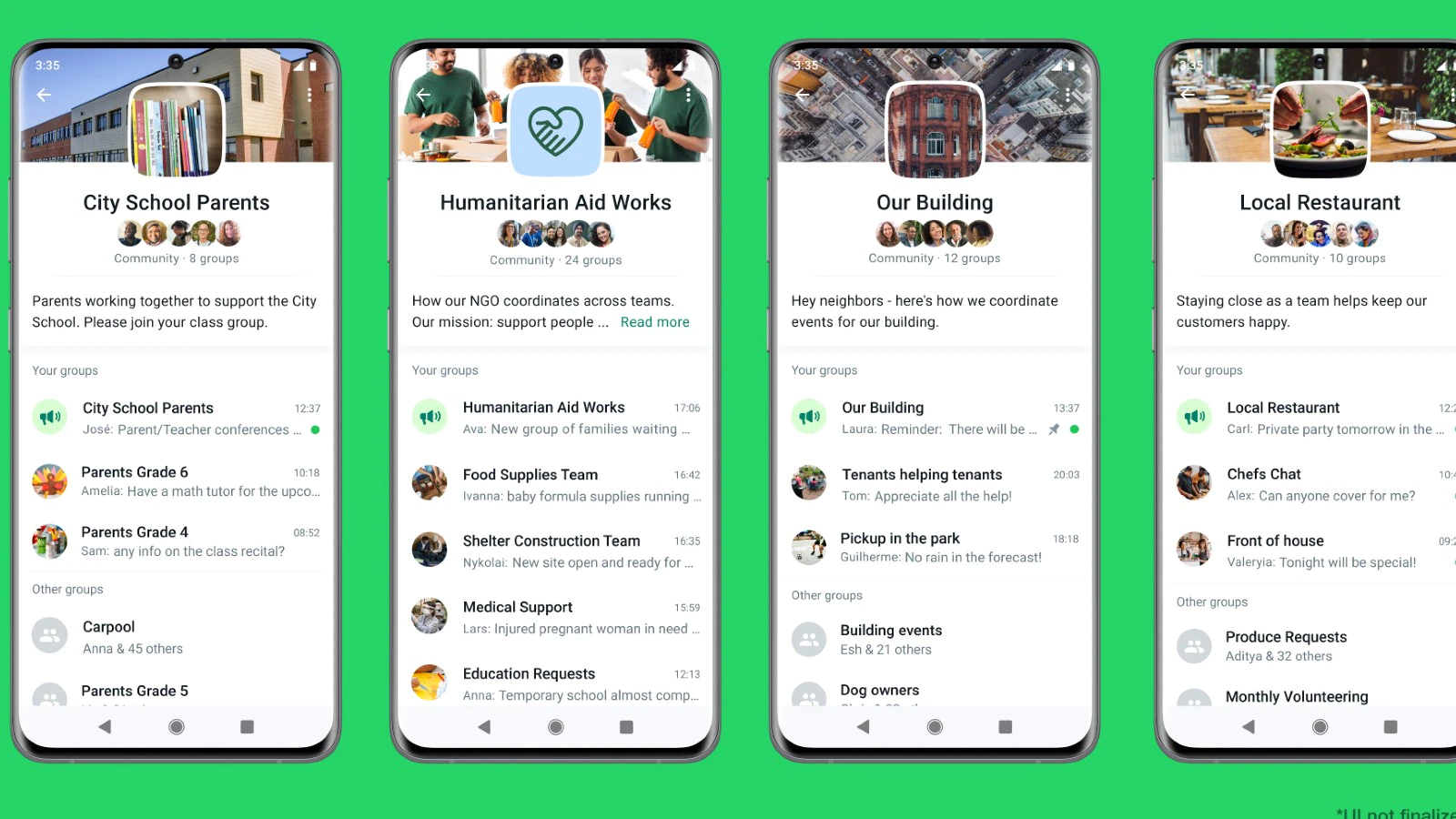These are just a few suggestions to get you started. The most important thing is to stay true to your voice and create music that you’re passionate about.
Melody & Harmony:
- Start with a strong hook: This is the catchy melody or lyric that grabs listeners and sticks in their heads. Hum,whistle, or sing ideas until you find something memorable.
- Explore familiar chord progressions: Popular music often relies on tried-and-true chord progressions, but don’t be afraid to experiment within them.
- Pay attention to melody contour: Use a mix of rising and falling notes to create emotional impact and avoid monotony.
- Vary your rhythm: Don’t stick to predictable rhythms. Incorporate syncopation, different note lengths, and rests to keep things interesting.
- Build tension and release: Use dynamics and instrumentation to create anticipation and resolve it satisfyingly.
Lyrics & Storytelling:
- Choose a relatable theme: Write about things your audience can connect with on an emotional level.
- Tell a story: Even simple songs can benefit from a narrative arc, even if it’s just a verse-chorus structure.
- Craft strong imagery: Use vivid language to paint pictures in the listener’s mind.
- Keep it concise: Don’t overcomplicate your message. Aim for clarity and emotional impact.
- Use repetition judiciously: Repetition can help solidify the hook, but overuse can become bland. Use it strategically for emphasis.
Production & Arrangement:
- Experiment with different sounds: Explore a variety of instruments, textures, and samples to create unique sonic landscapes.
- Focus on a clean mix: Ensure each element is audible and contributes to the overall sound without muddying it.
- Consider dynamics and transitions: Use volume changes and smooth transitions between sections to keep the song engaging.
- Leave room for your voice: Don’t overproduce the instrumental track. Let your voice shine through.
- Pay attention to details: Even small sonic flourishes can add personality and depth to your song.
Inspiration & Growth:
- Listen to music you love: Analyze what makes those songs work and adapt elements to your own style.
- Challenge yourself: Try writing in different genres or using unfamiliar techniques to expand your creative horizons.
- Collaborate with others: Get feedback from trusted friends, musicians, or online communities.
- Don’t be afraid to experiment: Be open to new ideas and don’t be afraid to make mistakes. Learning is part of the process.
- Enjoy the journey: Songwriting is a creative adventure. Have fun, express yourself, and let the music flow!
How do singers compose their songs?
Songwriting is a diverse and personal process, so there’s no single answer to how all singers compose their songs. However, here are some common approaches:
Inspiration and Ideas:
- Life experiences: Many singers draw inspiration from their own lives, experiences, emotions, and observations. This could be anything from a personal struggle to a beautiful sunset.
- Other music: Listening to other music can spark ideas for melodies, rhythms, and lyrics.
- Collaborations: Many singers work with other songwriters, producers, and musicians to create their songs. This can be a great way to get different perspectives and overcome creative blocks.
Putting it Together:
- Melody and chords: Some singers start with a melody or chord progression, while others build the song around lyrics.
- Structure: Most songs have a basic structure, like verse-chorus-verse-chorus-bridge-chorus. However, there are endless possibilities for variation.
- Lyrics: Songwriters use their words to tell stories, express emotions, and create imagery. They may craft lyrics first, or fit them around the melody later.
Tools and Techniques:
- Instruments: Many singers use instruments like guitars, pianos, or keyboards to write their songs.
- Recording software: Recording demos allows singers to experiment and refine their ideas.
- Lyric writing techniques: There are many techniques to help songwriters craft meaningful and impactful lyrics.
Here are some additional points to consider:
- Not all singers write their own songs: Some singers perform songs written by others.
- The process is iterative: Songwriting is rarely a linear process. Singers may revisit and revise different parts of the song many times before they are satisfied.
- There are no hard and fast rules: The most important thing is to find a process that works for you and allows you to express yourself creatively.
How do you sing and write amazing songs?
Songwriting:
- Brainstorming ideas: I can help you generate ideas for lyrics, melodies, chords, and song structures. Tell me a theme, feeling, or story you want to convey, and I can offer suggestions and variations.
- Crafting lyrics: I can help you polish your lyrics, check for grammar and clarity, and suggest synonyms or different phrasings to make your message more impactful.
- Exploring different genres: I can analyze the structure and lyrical techniques of songs in different genres and help you adapt those elements to your own writing.
- Providing feedback: I can analyze your drafts and offer constructive criticism on the overall structure, lyrics,melody, and flow of your song.
Musical Inspiration:
- Generating chord progressions: I can suggest chord progressions based on specific moods or genres you’re aiming for.
- Creating melodies: I can generate simple melodies based on your lyrics or chord progressions.
- Finding similar artists: If you tell me about music you enjoy, I can recommend similar artists or songs for inspiration.
Remember, writing “amazing” songs is subjective and depends on personal taste. But I can definitely be a valuable tool in your creative process, helping you explore ideas, refine your work, and find inspiration.
How can I make my melody more interesting?
There are many ways to make your melody more interesting, and the best approach will depend on your specific melody and the overall feel you’re going for. Here are some general tips:
Melody Construction:
- Combine stepwise motion and leaps: Most compelling melodies blend smooth progressions with jumps between notes. Stepwise motion creates a sense of flow, while leaps add excitement and contrast.
- Play with note lengths: Use a mix of long and short notes to keep the listener engaged. Experiment with syncopation to place notes off the beat for further rhythmic intrigue.
- Utilize different scales and modes: Stepping outside the typical major or minor scale can add unique flavors and emotional depth to your melody. Explore harmonic minor, pentatonic, or blues scales for inspiration.
- Incorporate ornaments and grace notes: Adding embellishments like trills, mordents, or passing tones can inject personality and micro-expressions into your melody.
Variation and Development:
- Repeat phrases with slight changes: Repetition is key to memorability, but avoid being static. Change the rhythm,pitch, or instrumentation of repeated phrases to maintain interest.
- Build tension and release: Create anticipation through rising notes or unresolved chords, then provide satisfying resolution to keep the listener hooked.
- Compose contrasting sections: Different sections (verse, chorus, bridge) can showcase different melodic aspects,preventing monotony.
- Add counterpoint or harmony: Consider layering multiple melodies or weaving harmonies around your main line for increased richness and texture.
Inspiration and Feedback:
- Analyze your favorite melodies: Identify what makes them captivating and try incorporating similar elements into your own work.
- Collaborate with others: Get feedback from fellow musicians or producers to gain fresh perspectives and suggestions.
- Experiment and don’t be afraid to take risks: Don’t be limited by conventional approaches. Try new things and see what sounds interesting to you.
Remember, the key is to keep your ear engaged and avoid predictable patterns. By utilizing these tips and actively listening to your melody, you can craft a captivating and memorable musical statement.
How do you get inspiration for a song?
Internal Inspiration:
- Personal experiences: Drawing on your own emotions, memories, and stories can be a powerful source of inspiration. Reflect on significant events, relationships, or challenges you’ve faced.
- Dreams and imagination: Pay attention to your dreams and explore your wildest ideas. Sometimes, the most unique songs come from unexpected places in your mind.
- Observations and emotions: Be mindful of your surroundings and how you feel throughout the day. Capture fleeting moments of beauty, sadness, or joy in your notes or recordings.
External Inspiration:
- Other artists: Listen to music outside your usual genre and analyze what you like about it. Try to learn from different techniques and styles.
- The world around you: Pay attention to people, nature, current events, and social issues. Find something that resonates with you and sparks your creativity.
- Art and literature: Immerse yourself in other forms of creative expression like poems, paintings, or films. See how they evoke emotions and tell stories, and translate that into your music.
Creative Techniques:
- Writing prompts: Use prompts like “write a song from the perspective of…” or “describe a memory in three words” to jumpstart your songwriting process.
- Collaborate with others: Work with other musicians or lyricists to exchange ideas and push each other’s creativity.
- Step outside your comfort zone: Experiment with new instruments, songwriting techniques, or genres. You never know what might surprise you.
Remember, inspiration is often fleeting. When it strikes, capture it immediately in a voice memo, written notes, or even a quick recording. The most important thing is to keep creating and expressing yourself, even when you don’t feel inspired.The more you practice, the easier it will become to tap into your creative wellspring.
What should I write a song about for beginners?
Picking a great topic for your first song is exciting! Here are some ideas to get you started, keeping in mind the beginner aspect:
Personal Experiences:
- A specific event: Did you have a memorable experience, like a trip, a graduation, or a funny encounter? Write about the sights, sounds, and emotions you felt.
- A feeling: Are you happy, sad, hopeful, or frustrated? Channel that emotion into a song.
- A person: Write about someone you admire, someone you miss, or even a fictional character. Focus on what makes them special.
Simple Themes:
- Nature: Describe a beautiful landscape, the changing seasons, or the wonder of wildlife.
- Everyday life: Write about your routine, a hobby you enjoy, or the little things that bring you joy.
- Dreams and aspirations: What do you hope to achieve? Express your ambitions and fears in a song.
Tips for Beginners:
- Keep it short and sweet: Don’t try to write an epic ballad on your first try. Aim for 2-3 verses and a catchy chorus.
- Focus on strong lyrics: Use vivid imagery, sensory details, and simple language to tell your story.
- Choose a familiar melody: Start with a chord progression or melody you already know and enjoy.
- Don’t be afraid to experiment: Break the rules, have fun, and find your own style.
Remember, the most important thing is to write about something that passionates you. Be authentic, express yourself freely, and enjoy the process!
Here are some additional resources that you might find helpful:
- Online songwriting tutorials: There are many free tutorials available online that can teach you the basics of songwriting.
- Songwriting apps and software: These tools can help you record your ideas, experiment with melodies, and write lyrics.
- Open mic nights and songwriting workshops: Attending these events can be a great way to connect with other songwriters and get feedback on your work.
How do you motivate an upcoming musician?
Motivating an upcoming musician can be tricky, as it depends on their individual personality, goals, and current struggles.However, here are some general tips that might help:
Intrinsic Motivation:
- Help them rediscover their passion: Remind them why they started making music in the first place. Was it the joy of playing, the power of connecting with others, or expressing themselves creatively? Share inspiring stories of other musicians who overcame challenges.
- Set achievable goals: Working towards small, attainable goals can provide a sense of accomplishment and fuel further progress. Encourage them to celebrate their victories, no matter how small.
- Focus on the joy of music: Sometimes, the pressure to succeed can overshadow the sheer enjoyment of playing.Encourage them to play for the fun of it, experiment, and explore different genres or techniques.
- Find a supportive community: Surrounding themselves with other musicians who understand their struggles and share their passion can be a huge source of encouragement.
Extrinsic Motivation:
- Offer constructive feedback: Provide honest but kind feedback that helps them identify areas for improvement.Focus on specific aspects they can work on, and praise their strengths.
- Create performance opportunities: Encourage them to share their music with others, even if it’s just for a small audience. The experience of performing and receiving feedback can be very motivating.
- Help them set realistic career goals: Discuss the music industry and set realistic expectations about the time and effort required to achieve their dreams. Offer guidance on resources and strategies they can use.
- Recognize their progress: Celebrate their milestones and improvements, no matter how small. Public recognition on social media or local platforms can also be a boost.
Additional Tips:
- Encourage healthy habits: Getting enough sleep, eating well, and staying active can improve focus, energy, and creativity.
- Help them manage stress: Dealing with performance anxiety, criticism, and rejection is part of being a musician.Offer coping mechanisms and stress management techniques.
- Be a patient and supportive friend: Remember, the journey to musical success is rarely linear. Be there for them through the ups and downs, offering encouragement and understanding.
Ultimately, the key is to tailor your approach to the individual musician’s needs and personality. By offering support,guidance, and encouragement, you can help them stay motivated and reach their full potential.
How do you motivate an upcoming musician?
Motivating an upcoming musician can be tricky, as their needs and challenges might differ. Here are some strategies you can adapt based on their situation:
Internal Motivation:
- Reconnect with the joy of music: Remind them why they started playing in the first place. Was it the pure love of creating music, the thrill of performing, or the satisfaction of mastering an instrument? Encourage them to revisit that initial spark.
- Set personal goals: Help them develop realistic and achievable goals, whether it’s learning a new technique,writing a song, or performing in a small venue. Celebrating small wins along the way keeps the momentum going.
- Embrace the journey: Emphasize that progress takes time and dedication. Encourage them to enjoy the learning process, experiment, and not be afraid of making mistakes.
- Find inspiration: Share stories of successful musicians who faced challenges, or expose them to new music and artists that might spark their creativity.
External Motivation:
- Find a supportive community: Connect them with other musicians, mentors, or online communities where they can receive feedback, collaborate, and share their passion.
- Offer constructive criticism: Provide honest feedback but focus on areas for improvement rather than negativity.Be specific and offer actionable tips for development.
- Celebrate their achievements: Recognize their progress, even small victories. Share their work with others, offer opportunities to perform, and express your genuine enthusiasm for their music.
- Help them set realistic expectations: Discuss the challenges of the music industry and the importance of persistence, resilience, and adaptability.
Additional Tips:
- Tailor your approach: Consider their personality, musical style, and current challenges.
- Focus on intrinsic motivation: Ultimately, the musician’s own passion and drive will be the most sustainable source of motivation.
- Be patient and encouraging: Every musician’s journey is unique. Offer support and guidance without putting undue pressure.
Remember, motivation is a two-way street. By understanding their needs and offering genuine support, you can help the musician stay inspired and chase their musical dreams.
How to make music for a song without instruments?
Don’t worry, even without instruments, you have several options to create music for your song! Here are some approaches:
Vocal-centric:
- Hum, whistle, or sing your melody: This is the most basic and direct way. Record yourself using a voice recorder or your phone, then experiment with layering and manipulating those recordings to create richer textures.
- Beatboxing or body percussion: Use your voice and body to create rhythms and percussive sounds. You can even incorporate found objects like tapping on tables or stomping your feet.
- A cappella groups: Consider joining or working with an a cappella group, where vocals take center stage and create complex harmonies and arrangements.
Technology-assisted:
- Digital audio workstations (DAWs): These software programs like GarageBand, Audacity, or FL Studio allow you to build music using digital instruments, loops, samples, and effects. Many offer free versions or trials to get you started.
- Online music creation tools: Websites like BandLab, Soundtrap, or Orkestr allow you to build music collaboratively using virtual instruments, loops, and even AI-powered composition tools. Some offer free tiers with limited features.
- Mobile apps: Numerous apps like Groovebox, BeatBox, or Caustic offer portable music creation with samplers,synthesizers, and drum machines, often designed for touch interfaces.
Additional resources:
- Pre-recorded tracks: Karaoke tracks or royalty-free instrumental loops can provide a foundation for your melody and lyrics.
- Collaboration: Find musicians willing to collaborate, even if you can’t play an instrument yourself. You can describe your ideas and work together to bring them to life.
Remember:
- Focus on the melody and lyrics first: A strong core is essential, regardless of how you create the music.
- Experiment and have fun! Don’t be afraid to try different tools and techniques to find what works for you.
- There’s no one right way: Embrace the unique sound you create without instruments.
Is making music a talent?
Making music can be seen as both a talent and a skill:
- Talent: Some people may have a natural aptitude for music, such as a good ear for pitch, rhythm, or melody. This innate ability can make learning an instrument or music theory easier and allow them to progress faster.
- Skill: Regardless of natural talent, making music requires dedication, practice, and the development of various skills. These include playing an instrument, understanding music theory, composing, arranging, and even things like music production and performance.
Ultimately, the ability to make music is likely a combination of both:
- Natural talent can give you a head start, but it’s not a guarantee of success. Even the most talented musicians need to put in the hard work and practice to hone their skills and create truly impactful music.
- With dedication and effort, anyone can learn to make music. You may not become a virtuoso, but you can still express yourself creatively, find enjoyment in the process, and even achieve a significant level of skill.
Here are some additional thoughts:
- There are many different forms of music-making, each requiring different skills and talents. What someone considers “talent” in classical music may not translate directly to electronic music or songwriting.
- The definition of “talent” itself is subjective. What one person sees as natural ability, another might see as the result of early exposure, cultural influences, or simply different learning styles.
The most important thing is to focus on enjoying the process of making music, regardless of your level of talent or skill. Whether you’re a beginner or a seasoned musician, there’s always something new to learn and explore in the world of music.
Do you find Six9ja useful? Click here to give us five stars rating!











